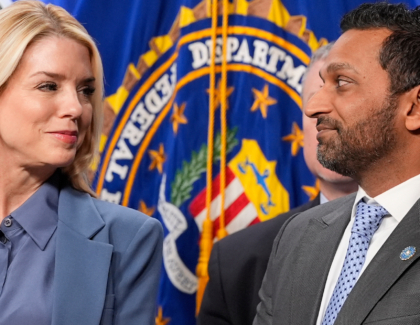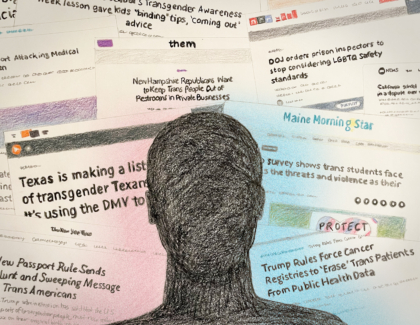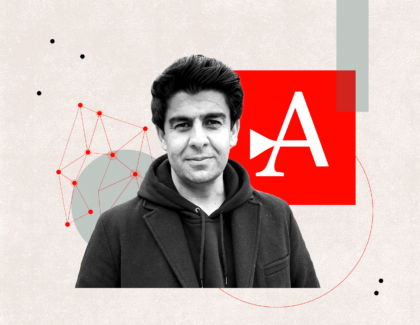Sign up for the daily CJR newsletter.
“Don’t be part of the story.” Fuck that.
Whether to put down your notebook or camera to come to the aid of a news subject in extremis has long been posed as a journalistic conundrum. Well, conund all you like; me, I’m not vexed. If a life is at stake, and I’m needed to intervene, the story must wait.
I do not bring this up for no reason. Here we are, all of us, in the midst of just such a life-or-death drama. The imperiled subject, slipping away before our eyes, is American democracy.
ICYMI: Two new bills in Congress propose a helping hand for a hurting industry
Permit me to trot out some data points. According to the 2010-14 World Values Survey, 23 percent of Americans age 29 and younger say democracy is a “fairly bad” or “very bad” way to run the country. The 2018 Democracy Project survey asked 1,400 adults about the importance of democracy to American society. Only 39 percent of respondents age 29 and younger said it was “absolutely important.” The 2018 Edelman Trust Barometer recorded that, in one year’s time, US citizens’ aggregate trust of government, business, nongovernmental organizations, and the free press plummeted 37 percent. And according to a 2017 Democracy Fund survey of 5,000 voters, 24 percent of the public said rule by “a strong leader who does not have to bother with Congress and elections” is a “very good” or “fairly good” way to run a country; 18 percent said the same about “army rule.”
In short: we’re seeing a precipitous decline in trust and faith in our democracy and its institutions. The electorate is demonstrably disaffected from the very system that for nearly 250 years has defined our way of life. Rule of law. Innocent until proven guilty. The Four Freedoms, including an independent press. One person, one vote. A republic indivisible, and with justice for all. That system.
Which brings Hobson to our door, offering a choice that is really no choice at all: Do we stand, journalistically disinterested, at some safe critical distance and merely record the outcome? Or do we rush headlong into the danger? The answer must be the latter.
That, anyway, was my call 17 months ago, when I was approached by colleagues alarmed by the state of the country. Yoram Wind of the Wharton School and Rebecca Winthrop of the Brookings Institution—scholars with very different political affiliations—saw the mortal danger to our way of life and agonized over what could be done. My first response was “Nothing. This is doom. We are in a vortex of ruin.” Which may still be true. But days of deliberation led to a notion, which evolved into an objective, which yielded a checklist and, thenceforth, a strategy. It is called the Purple Project for Democracy.
Purple is a media and education campaign, set for this November, to immerse Americans of every age and stripe in content that educates, illuminates, dramatizes, demythologizes, and promotes the core values and institutions of our democracy. Not to be jingoistic or, God forbid, to whitewash sins and failures past or present, but to recapture American hearts and minds. Kind of like those Marriage Encounter weekends, popular in the ’70s, where Mom and Dad tried to rekindle the flame—only, in our case, not in some crappy resort, but rather in 14 media channels and classrooms in 50 states for 30 days. After the initial rollout, we’ll build a social platform encouraging civic participation, toward a goal of literally changing norms—a la “Friends Don’t Let Friends Drive Drunk”—to discourage opting out.
At its heart, Purple is a branding campaign, creating a banner under which every slice of society—including 100-some nonprofits who have attacked the same problem for decades—can join arms in shared purpose. We have already assembled a broad coalition of institutional partners and contributors, who share our belief that unprecedented visibility to the cause will create a critical mass and sense of urgency that have been elusive—even as civics curricula have gone begging, if not missing altogether, in our schools.
Now, having devoted 17 months to assembling an institutional coalition, we undertake to build a parallel coalition of media partners—especially news organizations —to bring Purple to their audiences. They will do so in whatever way they deem fit, based on their own editorial goals and ethos. It can be education, local or national case histories, radical transparency efforts in their current journalism, how-news-is-made flow charts, contrasts to societies without a Bill of Rights, whatever. Text, video, audio. Comics. Advice columns. We have no preferences, and we will not interfere—except to insist that no content may be partisan, political, or flogging a particular policy. Oh, and it has to be, you know, truthful.
So far, we’ve chiefly appealed to media partners through industry associations—the News Media Alliance and the Association of Magazine Media, for instance. But we also have a range of individual content makers on board, from The San Francisco Chronicle to The Washington Post, from WNYC Studios and the Kennedy Center to iCivics and the “Beyond the Uniform” podcast. Larger participants will syndicate their Purple content to smaller organizations free of charge. And many more partners are on the way.
Does that sound like a pitch? It is, and that puts me in a very peculiar position. If there is one impulse more suspect than making the reporter part of the story, it is being caught crusading. Thus I’ve spent 43 years in the finding-fault-with-others industry merely observing, reporting, analyzing, and opining with the sort of detachment we demand of rigorous journalism—which is more or less how we’ve handled this story until now.
Observing that very canon, of course, the Fourth Estate has done a splendid job documenting and parsing the nature of our ongoing political crisis in exquisite detail without its members casting ourselves as Holy Warriors. But, to reiterate, democracy is drowning right in front of us. Are we to stand by and merely observe? No. Grab a life preserver. Now. And swim.
RECENTLY: Social media giants are restricting research vital to journalism
Has America ever needed a media defender more than now? Help us by joining CJR today.







